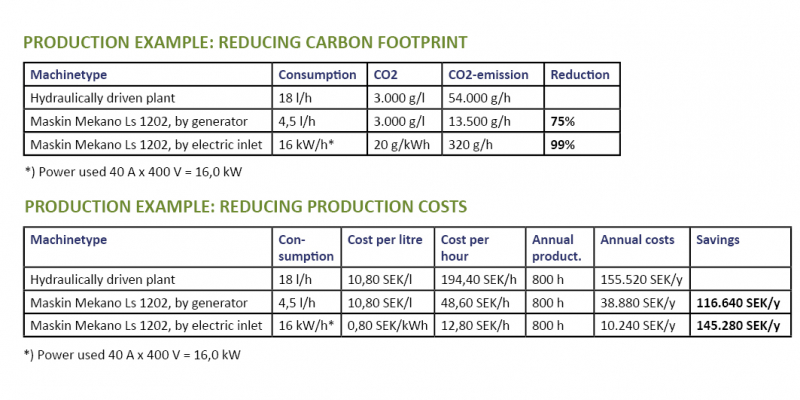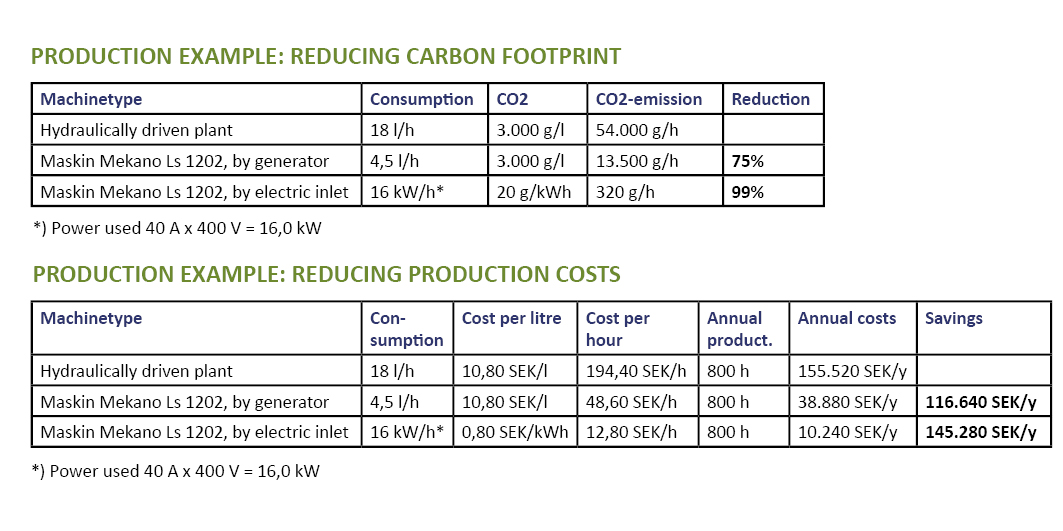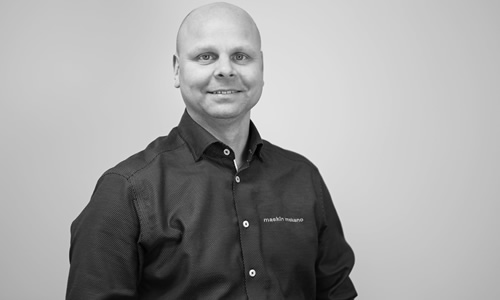All our plants have been electrically driven the latest 20 years. Some of the plants can be delivered with a diesel generator (either on-board or on a lifting frame), but they can all be plugged in to mains. Hydraulics is only used for linear motions (such as jacking legs, catwalks and folding of conveyors) which reduces the risk of harmful leakages of hydraulic oil to a minimum.
As an example the fuel consumption per hour for the huge final screen SH 1502 is 5 litres when a diesel generator is used. Compared to hydraulically driven screeners the CO2-emission is reduced with 80% and the noise impact is lowered with 10 dB. If you run it on mains it uses 20 kWh per hour, which reduces the costs with 99%. (You can see some more examples below.) Electrical drive is not only profitable, it is about our environment and a question of credibility for the crush- and screening industry.









